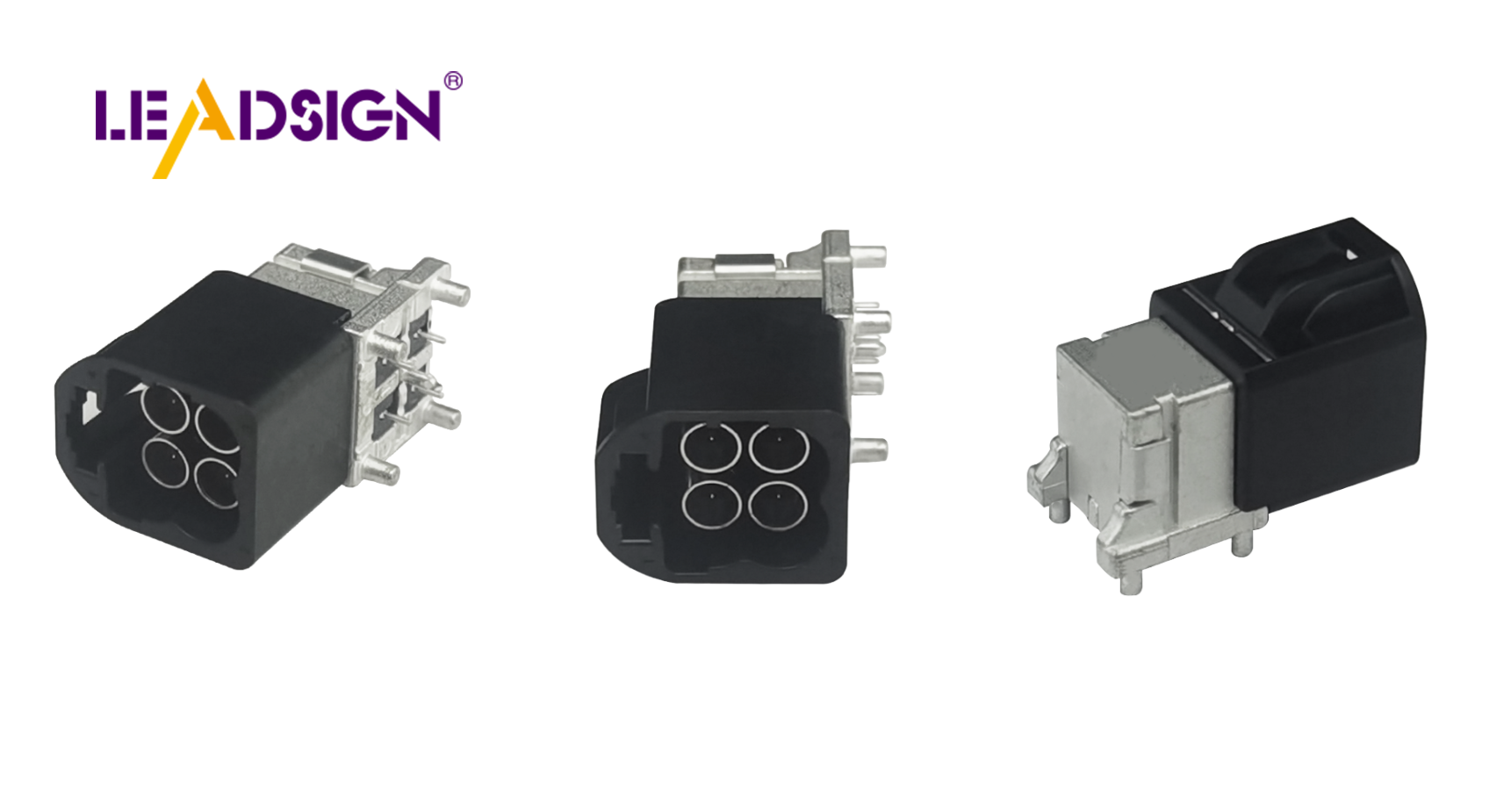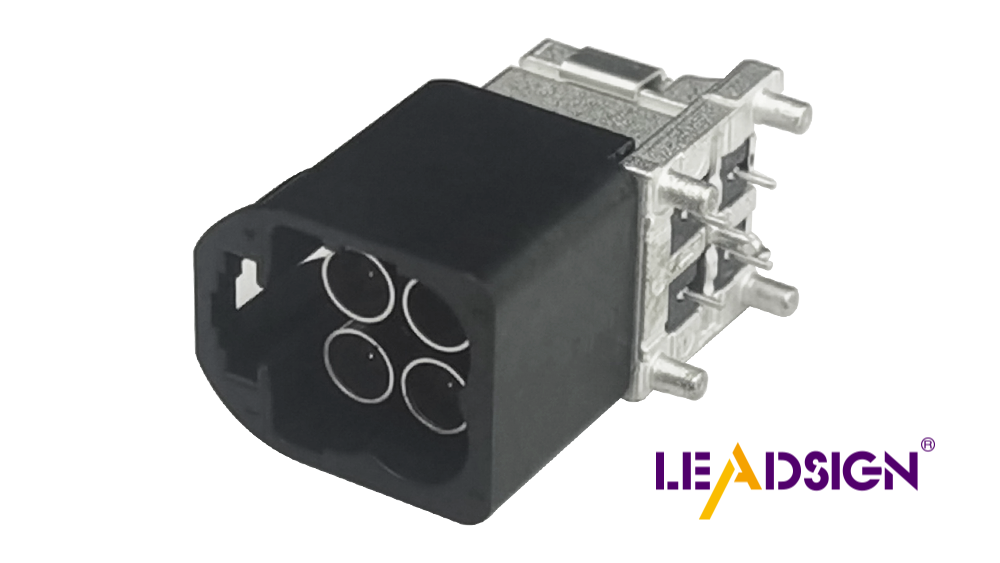How to Identify and Replace Automotive Wire Connectors Types

Understanding automotive wire connectors types is crucial for your vehicle's safety. These connectors ensure efficient electrical flow, impacting your car's longevity. Issues such as corrosion or damage can disrupt these connections, leading to costly repairs. Identifying and replacing faulty connectors can save time and money compared to replacing entire wiring systems. High-quality connectors, such as those made from nylon, offer better durability and performance. Acquiring this knowledge enhances your car's functionality and boosts your confidence in handling repairs.
Understanding Automotive Wire Connectors

Knowing different car wire connectors helps keep your car's electrical parts working well. Let's look at the types, materials, and uses of these important pieces.
Types of Connectors
Car wire connectors come in many kinds, each with a special job:
Blade Connectors
Blade connectors are flat metal pieces that fit into slots. They are often found in fuse boxes. Their simple design makes them easy to use and popular.
Bullet Connectors
Bullet connectors have a round end that fits tightly into a socket. They are used in car lights and stay connected even if the car shakes.
Butt Connectors
Butt connectors join two wires together. They are good for fixing or making wires longer. You put the wire ends inside and squeeze to hold them tight.
FAKRA Connectors
FAKRA connectors are special for high-speed tasks like GPS or satellite radio. They help send data fast, which is important for new car tech. FAKRA connectors are special for high-speed tasks like GPS or satellite radio. They help send data fast, which is important for new car tech.
Connector Materials
What a connector is made of affects how it works:
Plastic
Plastic ones are light and don't rust easily. They're used where water might be present but still work well and cost less.
Metal
Metal ones are strong and conduct electricity well. They're used where strength matters most, handling heat better than plastic.
Common Uses and Applications
Knowing how these connectors work helps you pick the right one:
Electrical Systems
Car wire connectors link things like lights to the battery so power flows correctly. Picking the right one stops problems and keeps cars running well.
Engine Components
In engines, they connect sensors to computers for real-time data sharing, helping engines run smoothly without issues.
By learning about these car wire connectors, you can fix or upgrade parts confidently to keep your vehicle in top shape.
Finding the Right Connector
Finding the right automotive wire connectors can be tricky. But don't worry! With some simple steps, you can learn how. Let's see how to look and use tools to find the right ones for your car.
Looking Closely
First, look carefully at the connectors. It's like being a detective!
Checking for Problems
Look closely for damage. Check for rust, broken parts, or color changes. These problems can stop electricity from flowing well. Finding them early can save money on repairs later.
Knowing Connector Shapes
Next, check the shape and color of connectors. They come in shapes like triangles and squares. Count the pins too. This helps match with the right replacement. Each type has a special job, so choose carefully.
Using Tools
Sometimes eyes need help from tools to find automotive wire connectors.
Multimeter
A multimeter is very helpful. It checks things like voltage and resistance. Use it to see if a connector works well. It quickly shows if there's an electrical problem.
Identification Kits
Identification kits are also useful. They have adapters and guides to help match connector types. They're great for complex automotive wire connectors.
Expert Tip: Real car electrical connectors fit better and last longer.
By learning these steps, you can find the right automotive wire connectors easily. This saves time and money and makes fixing cars easier! Next time you open the hood, you'll know what to do!
Changing Car Wire Connectors
Changing car wire connectors can seem hard, but you can do it easily with the right steps. Let's make it simple and clear. Learn more about wire connectors types.
Getting Ready
Before starting, get ready. This makes everything go smoothly.
Collecting Tools
First, gather your tools. You need:
Wire cutters
Crimp tool
Multimeter
Heat gun (for special connectors)
Screwdrivers
Having these tools helps you work faster and without problems.
Staying Safe
Safety is important. Always unplug the battery first to avoid shocks. Wear goggles and gloves to stay safe from sparks or sharp parts.
How to Change Connectors
Now that you're ready, let's change the connectors step by step.
Taking Out the Old Connector
Find the Bad Connector: Look for rust or broken parts.
Unplug the Battery: Make sure there's no power to stay safe.
Remove It: Use a screwdriver or pliers to take out the old connector carefully.
Putting in the New Connector
Get Wires Ready: Cut off half an inch of plastic from wire ends.
Connect New One: Put wires in new connector and use crimp tool.
Seal It Tight: If using heat shrink, use heat gun for tight fit.
Checking Your Work
After putting in a new connector, check if it works well.
Making Sure It Works Right
Use a multimeter to see if electricity flows right through it. If it shows a full circuit, you did it right!
Fixing Problems
If there are issues, don't worry! Check for loose wires or bad crimps. Fix them and test again with multimeter.
Pro Tip: Write down what you did and where things are placed for next time repairs are needed.
By following these easy steps, you can change car wire connectors confidently! This saves money and keeps your car safe and working well!
Tips for Buying Connectors
Picking the right automotive wire connectors helps your car work better. Here are some tips to help you choose wisely.
Picking Good Connectors
Not all connectors are good. You need ones that last long and work well.
Brand Advice
Look at trusted brands first. Connector Experts say real car electrical connectors go through tough tests to fit and last in cars. Brands like LEADSIGN have strong FAKRA connectors known for their toughness. Check customer reviews and ask car experts to find the best ones for you.
Material Choices
The connector's material is important for how it works. Metal ones conduct electricity well and are strong, great for hot places. Plastic ones are light and don't rust, perfect where there's water. Pick based on where you'll use them in your car.
Cost vs. Quality
Balancing price and quality is key when buying automotive wire connectors types. Here's how to decide smartly.
Budgeting Connectors
Cheap options can be tempting but might cause big problems later. Connector Experts warn they can harm your car over time. Plan your budget to buy good-quality connectors that keep things safe.
Long-term Benefits
Good-quality connectors give long-term perks. They work better and need fewer changes. The Old Cars Review Team says using removable conductive connectors offers flexibility and trustworthiness. Think about long-term value over short savings to keep your car running well.
By following these tips, you can pick the right automotive wire connectors confidently for your vehicle, ensuring it runs great while feeling secure about your choice.
You now know how to find and change automotive wire connectors. This keeps your car safe and working well. Remember these important tips:
Find the Right Connector: It stops problems and makes sure things work right.
Choose Good Materials: Nylon and polycarbonate are strong and protect wires.
Use Your Skills: Fix and take care of your car with confidence.
By taking care of your car's wires, you avoid dangers like fires or expensive fixes. Keep practicing to drive safely and smoothly.
See Also
Exploring HSD Connectors in Automotive Sector
Navigating Ford Fakra Connections
Significance of FAKRA in Auto Tech

